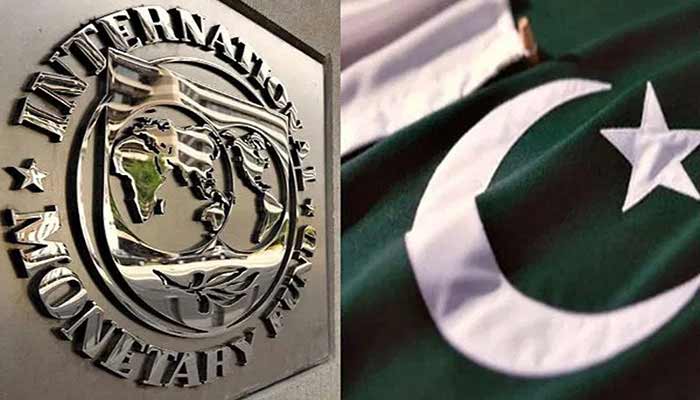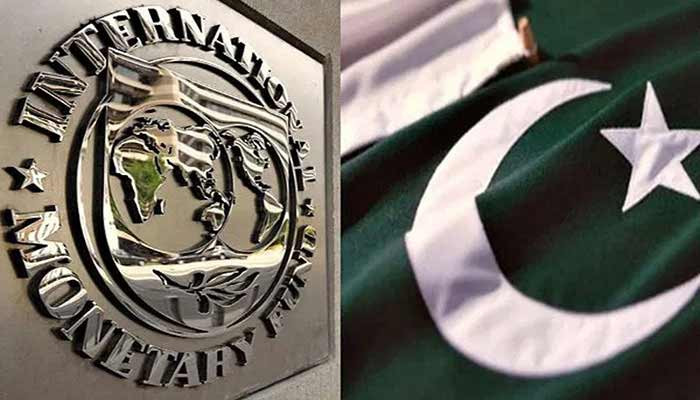
The International Monetary Fund (IMF) released the details of the agreement with Pakistan. According to the IMF statement, Pakistan has given solid assurance for increasing revenue.
The IMF says that the primary surplus will be kept at 401 billion rupees during the current financial year. Under the agreement, agriculture and construction will be taxed.
The declaration said that subsidies to the energy sector would be gradually reduced, and expenditure on salaries and pensions would be reduced.
Funding for welfare programs like the Benazir Income Support Program (BISP) will be increased, central and provincial governments will increase funds in the welfare sector.
Under the IMF agreement, restrictions on imports will be removed, currency exchange rates will be kept in line with the market.
Under the agreement, the government will not issue any new tax amnesty scheme, the government will not issue tax exemptions or tax incentives, while the monitoring report of government institutions will also be issued.
According to the IMF statement, the difference between the open and interbank rate of the dollar will not be more than 1.25%, the notification of the increase in electricity prices will be issued in 2024.
Under the agreement, the Law on Improvement of Governance in Public Institutions will be activated, the National Accounts Quarterly Report will be issued.
Import restrictions will be lifted until the end of the program, the IMF said Pakistan needs to increase foreign exchange reserves, the government will not take new loans from the State Bank.
As per the agreement with the International Monetary Fund, FBR needs to urgently resolve tax refund issues, power sector arrears need to be cleared.
Inflation rate in Pakistan is likely to be 25.9%, Pakistan’s economy will suffer from slow growth rate, economic growth rate may be 2.5%.
The IMF says that the unemployment rate could be 8 percent in fiscal year 2024, while the unemployment rate in Pakistan during fiscal year 2023 was 8.5 percent.
The unemployment rate in Pakistan was 6.2 percent in fiscal year 2022, the IMF said.
The IMF added that Pakistan’s fiscal deficit is expected to remain at 7.5 percent of the economy, while the debt ratio in the economy will remain at 74.9 percent.
Pakistan’s economy will be reviewed in November 2023 and February 2024, before both reviews Pakistan will have to show performance.
According to the agreement, the IMF will be consulted for taking new measures and changing policies.
Pakistan will provide timely and authentic data to the IMF, Pakistan will not withhold international payments while in the program.
IMF says that Pakistan needs to increase the budget on education and health sectors, steps are needed to increase sales tax, customs duty, to increase revenues.
FBR should refrain from making payments in the form of cash refunds, sales tax refunds have reached 183 billion and income tax refunds have reached 215 billion.
The IMF further said that reforms in the power sector in Pakistan have become inevitable, discos are not recovering, the revolving debt is increasing due to the difference in tariffs.
To reduce inflation, monetary policy will have to be tightened, Pakistan will get 3 billion dollars under the Standby Arrangement Program.
During the new financial year, Pakistan will be provided resources for its heavy external financial needs, Pakistan will have to follow the new 9-month program steadfastly.
The IMF report said that the independence of the State Bank is essential, the State Bank must be given the opportunity to act independently on monetary policy.
In order to reduce the financial deficit, the provinces have to give a surplus budget, and serious measures have to be taken to increase the tax revenue.
The IMF said that 859 billion rupees will be collected in the current financial year in the form of petroleum levy, next year the petroleum levy is likely to exceed 1000 billion rupees.
The report further said that by 2025-26, the target of petroleum levy is likely to reach 1134 billion, this year it is likely to collect 2116 billion rupees in the form of non-tax revenue.
setTimeout(function(){
!function(f,b,e,v,n,t,s)
{if(f.fbq)return;n=f.fbq=function(){n.callMethod?
n.callMethod.apply(n,arguments):n.queue.push(arguments)};
if(!f._fbq)f._fbq=n;n.push=n;n.loaded=!0;n.version=’2.0′;
n.queue=[];t=b.createElement(e);t.async=!0;
t.src=v;s=b.getElementsByTagName(e)[0];
s.parentNode.insertBefore(t,s)}(window,document,’script’,
‘https://connect.facebook.net/en_US/fbevents.js’);
fbq(‘init’, ‘836181349842357’);
fbq(‘track’, ‘PageView’);
}, 6000);
/*setTimeout(function(){
(function (d, s, id) {
var js, fjs = d.getElementsByTagName(s)[0];
if (d.getElementById(id)) return;
js = d.createElement(s);
js.id = id;
js.src = “//connect.facebook.net/en_US/sdk.js#xfbml=1&version=v2.11&appId=580305968816694”;
fjs.parentNode.insertBefore(js, fjs);
}(document, ‘script’, ‘facebook-jssdk’));
}, 4000);*/



